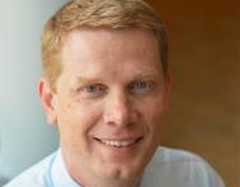 In light of recent headlines, you might be wondering whether there have been more weather-related disasters lately. According to the International Disaster Database, the number of extreme events worldwide has quadrupled since 1970. Hydrologic events have increased six-fold over the last 37 years. Climate scientists tell us that the increasing frequency and intensity of these events can be attributed to global warming, which is driven by human activities.
In light of recent headlines, you might be wondering whether there have been more weather-related disasters lately. According to the International Disaster Database, the number of extreme events worldwide has quadrupled since 1970. Hydrologic events have increased six-fold over the last 37 years. Climate scientists tell us that the increasing frequency and intensity of these events can be attributed to global warming, which is driven by human activities.
The science that explains the causes of climate change does not dictate the solution. It is up to policymakers to find the best way to slow or stop the buildup of greenhouse gases in our atmosphere. Despite decades of debate, robust mitigation proposals have proven to be politically unworkable within the United States. Because America is one of the top producers of greenhouse gases, our inability to lead on this issue has brought the entire world to an impasse. Without adequate reductions of carbon emissions, we are left to ponder what the implications of global warming will be.
Responding to threats posed by climate change is a multidisciplinary problem. Research ranging from materials science to epidemiology will be critical to our ability to slow the process of climate change and to countering the ultimate effects of our warming planet. As a member of the scientific community, you may be seeking opportunities to contribute to the debate around climate policy. Sigma Xi members, representing every research discipline, can assist by building connections with the public and by participating in the policy making process.
Participate in Climate Change Discussions
.tmb-medium.jpg?sfvrsn=c899b858_1) On Friday, November 10, Sigma Xi is convening a symposium in Raleigh, North Carolina, where climate researchers will discuss the intersections between climate change, environmental health, and human health. Attendees will gain insights into the state of climate change and possible solutions, both technologically and policy-driven. The lectures will be followed by a climate town hall where citizens from the surrounding area will be able to raise their questions and concerns to a panel of experts. This event will allow you to directly engage with the public on this critical issue. In addition, those who choose to attend the Student Research Conference on Saturday, November 11, will have an opportunity to learn to communicate their research findings to policymakers and the public through a professional workshop conducted by communications consultant, Aaron Huertas.
On Friday, November 10, Sigma Xi is convening a symposium in Raleigh, North Carolina, where climate researchers will discuss the intersections between climate change, environmental health, and human health. Attendees will gain insights into the state of climate change and possible solutions, both technologically and policy-driven. The lectures will be followed by a climate town hall where citizens from the surrounding area will be able to raise their questions and concerns to a panel of experts. This event will allow you to directly engage with the public on this critical issue. In addition, those who choose to attend the Student Research Conference on Saturday, November 11, will have an opportunity to learn to communicate their research findings to policymakers and the public through a professional workshop conducted by communications consultant, Aaron Huertas.
I would like to personally encourage you to join us for this exciting event. The lessons you learn and apply in your own community could make the difference in our ability to respond to climate change.
Learn about Climate Change
As we prepare for the symposium, you can learn more about climate change from the following American Scientist articles.
Sincerely,

Jamie L. Vernon, PhD
Executive Director and CEO
Sigma Xi, The Scientific Research Honor Society
Publisher of American Scientist